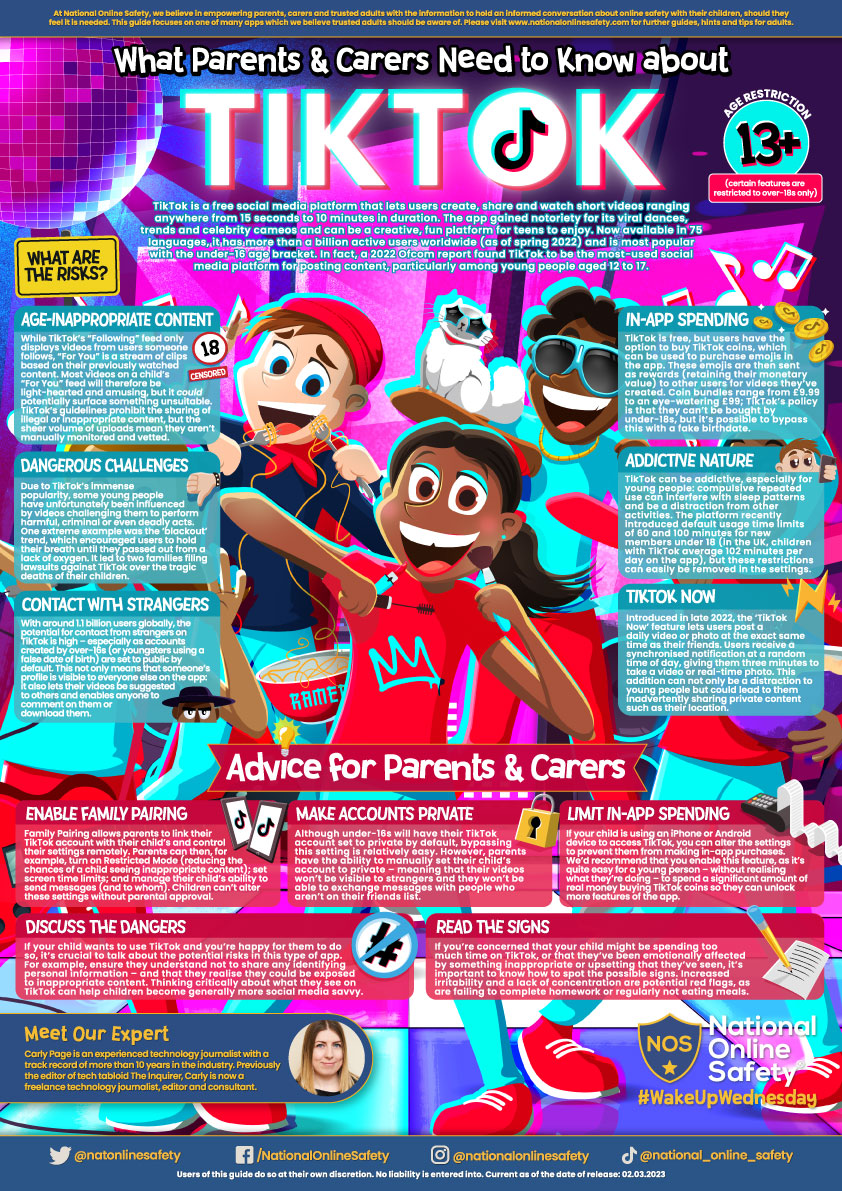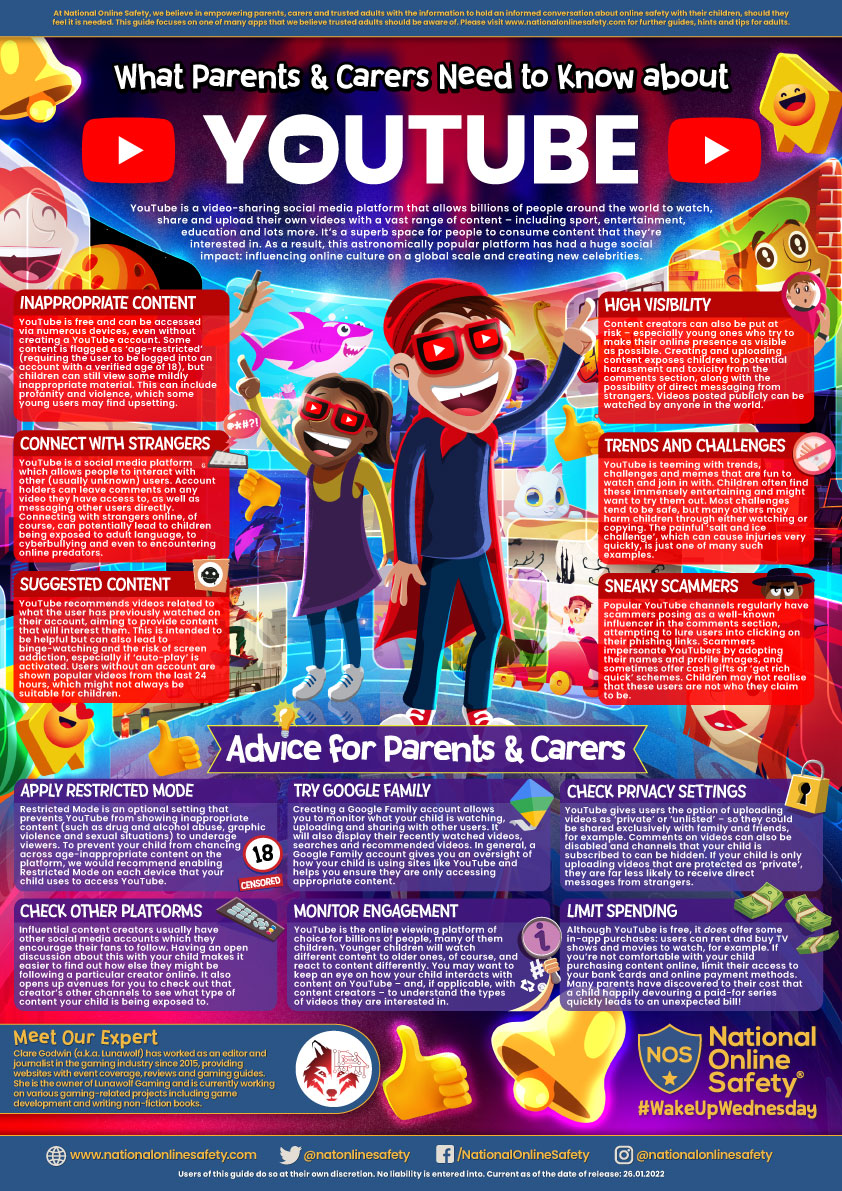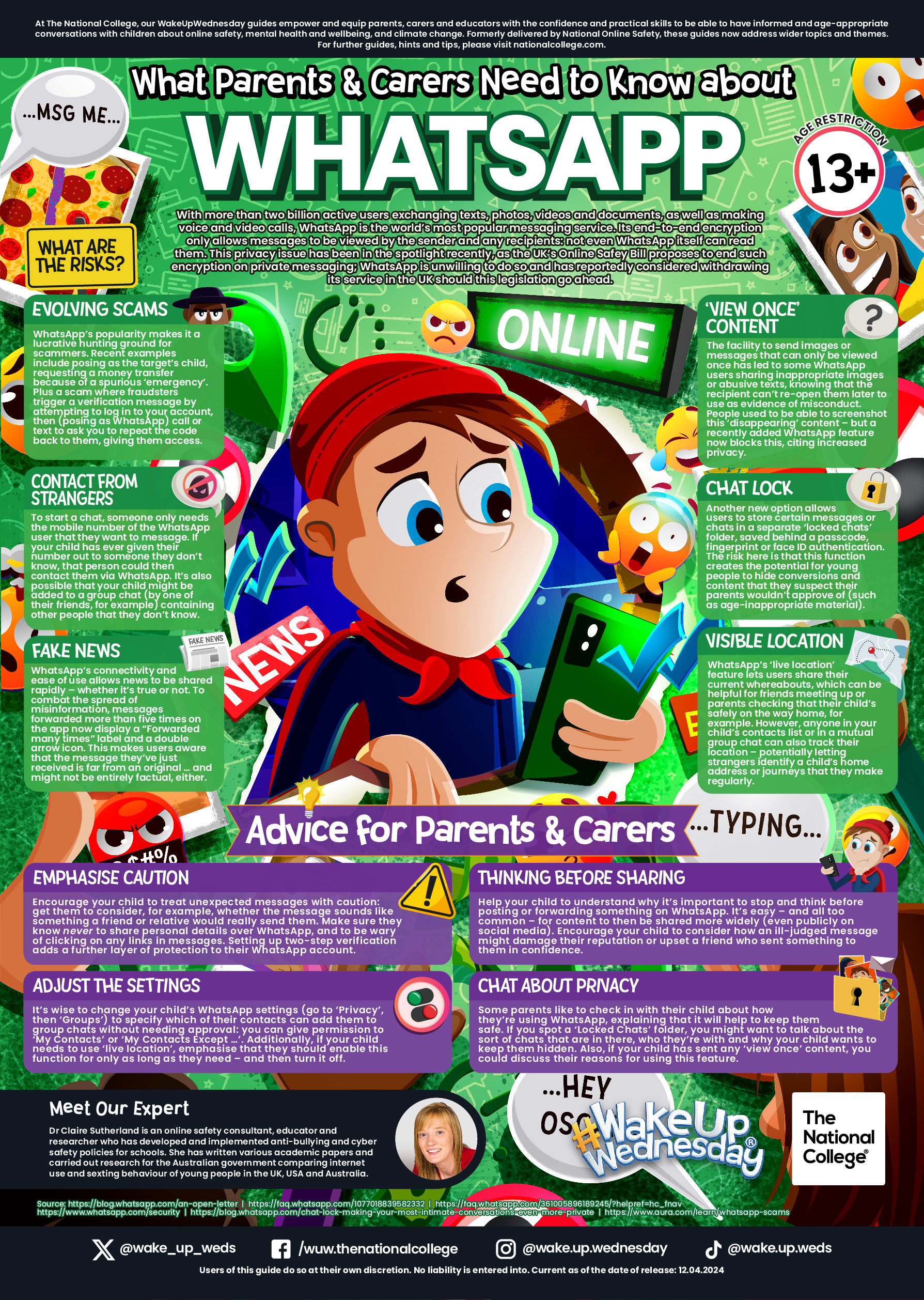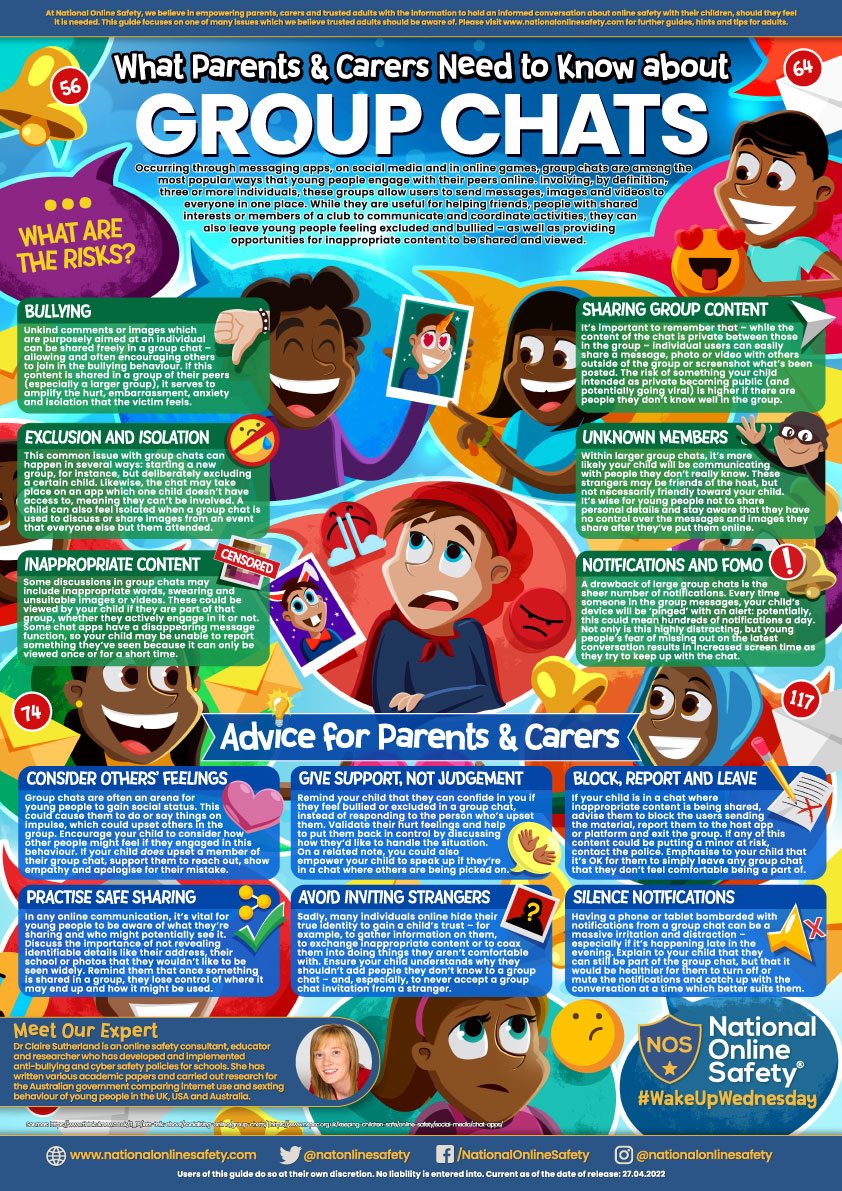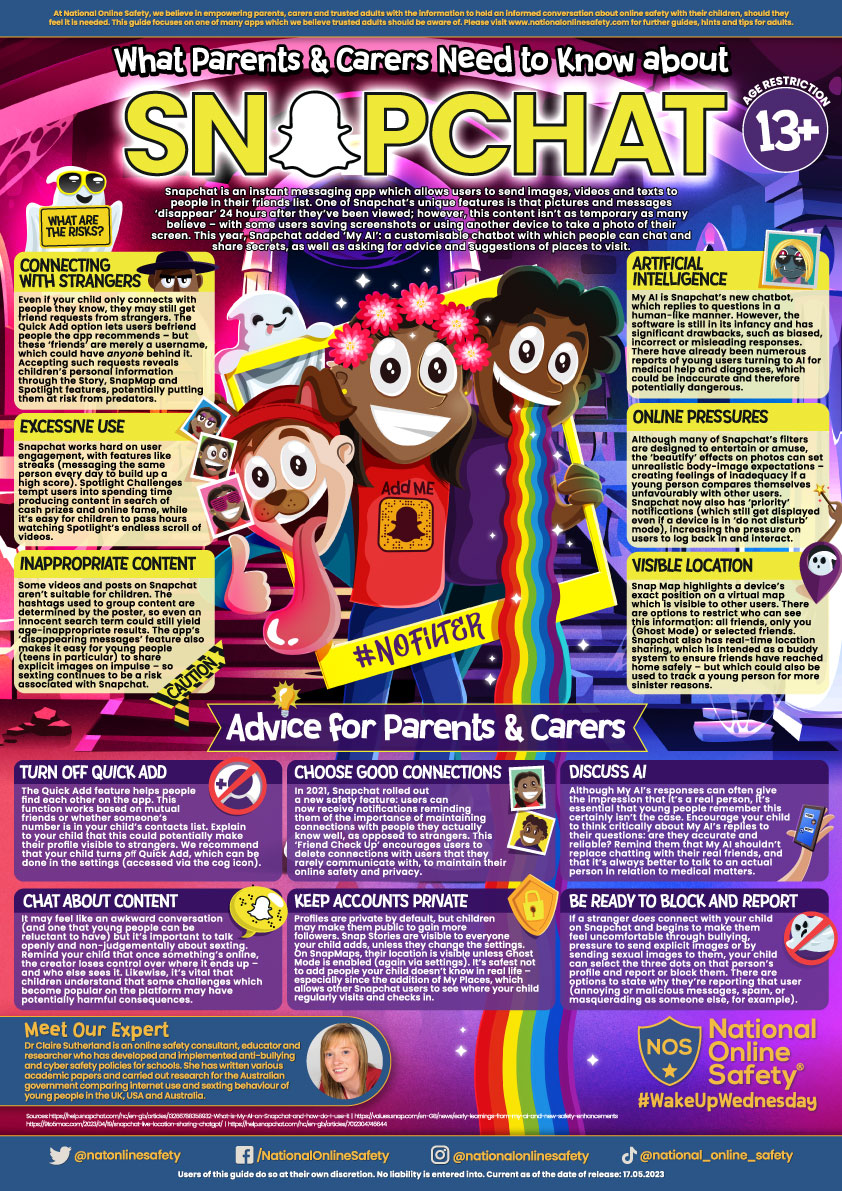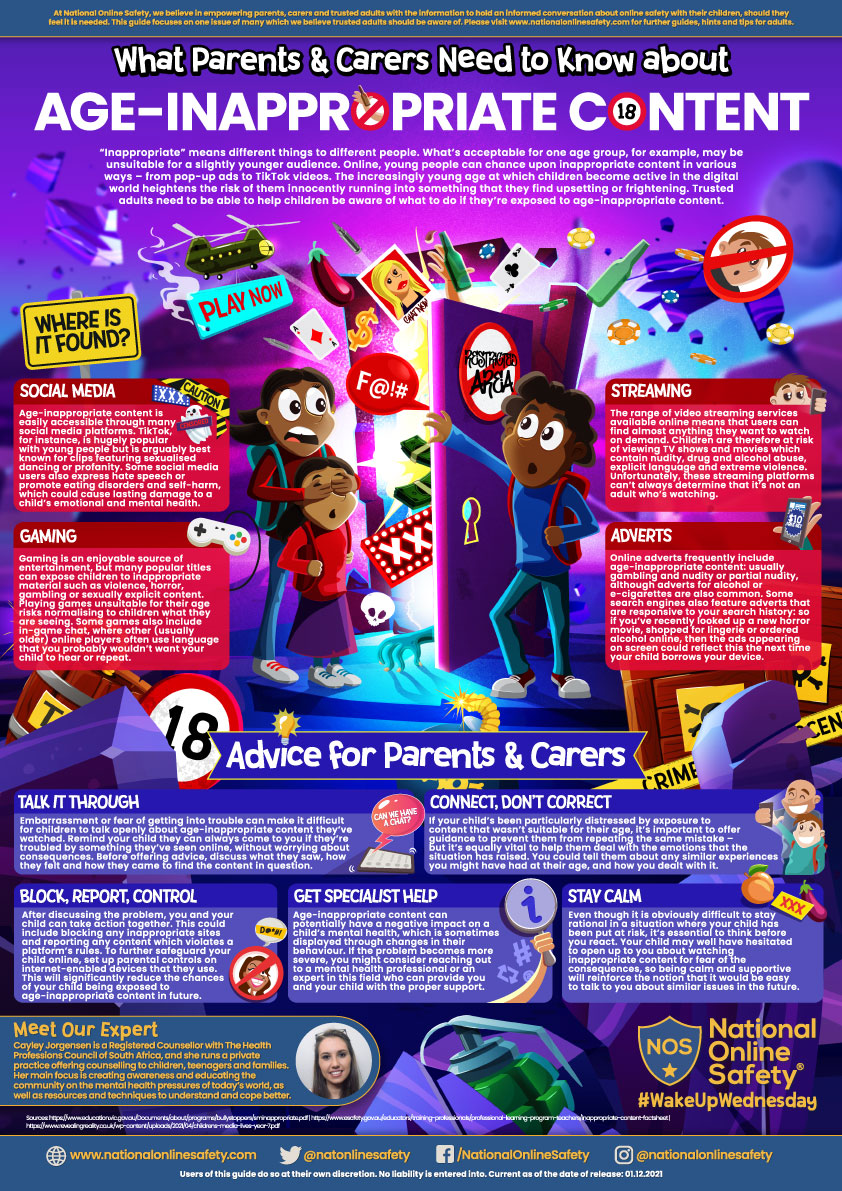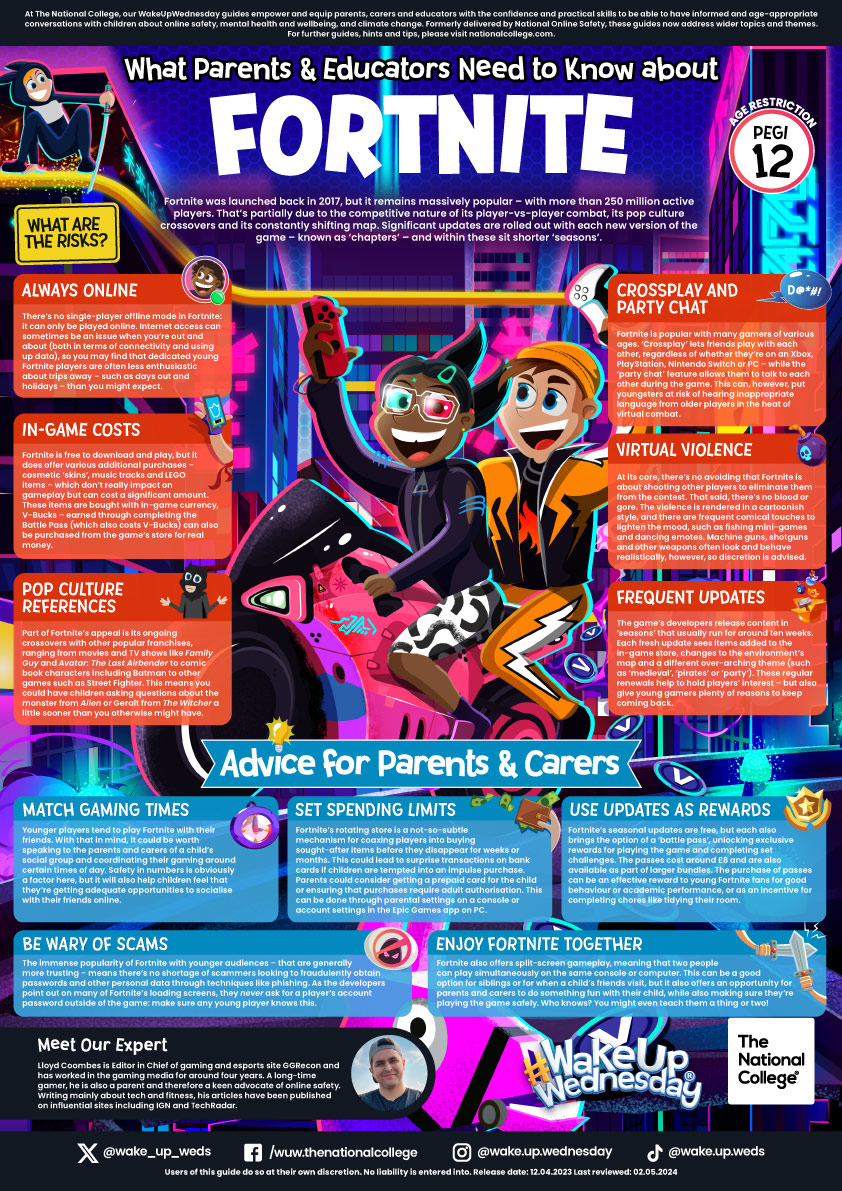Wake up Wednesday
Every Wednesday, you will receive an email from Mr Rouch with a 'Wake up Wednesday' guide from National Online Safety. These guides provide advice and guidance on how to safeguard your child in different contexts like physical devices, websites or games. Please use these guides to start a conversation with your child about the topic of the guide. You may even wish to share it with them and go through it together.
If you find the content useful, you may wish to explore the National Online Safety website. There you will find further free materials.
Please also see some of the most useful and highly rated guides below for your reference:
What Parents & Carers Need to Know About TikTok:TikTok is a free social media platform that lets users create, share and watch short videos ranging anywhere from 15 seconds to 10 minutes in duration. The app gained notoriety for its viral dances, trends and celebrity cameos and can be a creative, fun platform for teens to enjoy. Now available in 75 languages, it has more than a billion active users worldwide (as of spring 2022) and is most popular with the under-16 age bracket. In fact, a 2022 Ofcom report found TikTok to be the most-used social media platform for posting content, particularly among young people aged 12 to 17. In the guide, you'll find tips on avoiding potential risks such as age-inappropriate content, dangerous challenges and contact with strangers. |
|
What Parents and Carers Need to Know About YouTubeYouTube is a video-sharing social media platform that allows billions of people around the world to watch, share and upload their own videos with a vast range of content – including sport, entertainment, education and lots more. It’s a superb space for people to consume content that they’re interested in. As a result, this astronomically popular platform has had a huge social impact: influencing online culture on a global scale and creating new celebrities. In the guide, you'll find tips on avoiding potential risks such as connecting with strangers, inappropriate content and high visibility. |
|
What Parents and Carers Need to Know About WhatsAppWhatsApp is the most widely used messaging platform on the planet, with over two billion users (forecast to become three billion by 2025), across more than 180 countries. The majority of those people (70%) open the app at least once a day – but what exactly are they seeing? Contact from strangers, fake news and convincing scams are all among the service’s well-documented hazards. According to Ofcom, WhatsApp is used by more than half of 3- to 17-year-olds in the UK (including one in three from the 8–11 bracket), despite its 16+ age restriction. If your child hops onto WhatsApp to stay in touch with friends or family, our updated #WakeUpWednesday guide to the service contains the key details you’ll need to support them in doing it safely. |
|
What Parents and Carers Need to Know About Group ChatsOccurring through messaging apps, on social media and in online games, group chats are among the most popular ways that young people engage with their peers online. Involving, by definition, three or more individuals, these groups allow users to send messages, images and videos to everyone in one place. While they are useful for helping friends, people with shared interests or members of a club to communicate and coordinate activities, they can also leave young people feeling excluded and bullied – as well as providing opportunities for inappropriate content to be shared and viewed. In the guide, you'll find tips on a number of potential risks such as bullying, inappropriate content and unknown members. |
|
What Parents and Carers Need to Know About SnapchatSnapchat is a photo- and video-sharing app through which users can chat with friends via text or audio. Images and videos can be shared with specific friends, or as a ‘story’ (documenting the previous 24 hours) which is visible to a person’s entire friend list. Snapchat usage rose significantly during the lockdown periods, with many young people utilising it to stay connected with their peers. The app continues to develop features to engage an even larger audience and emulate current trends, rivalling platforms such as TikTok and Instagram. In the guide, you'll find tips on avoiding potential risks such as sexting, visible location and contact from strangers. |
|
What Parents and Carers Need to Know About Age-Inappropriate Content“Inappropriate” means different things to different people. What’s acceptable for one age group, for example, may be unsuitable for a slightly younger audience. Online, young people can chance upon inappropriate content in various way – from pop-up ads to TikTok videos. The increasingly young age at which children become active in the digital world heightens the risk of them innocently running into something that they find upsetting or frightening. Trusted adults need to be able to help children be aware of what to do if they’re exposed to age-inappropriate content. In the guide, you'll find tips on a number of potential risks such as social media, gaming and adverts.
|
|
What Parents and Carers Need to Know About FortniteIf you know any young gamers, you’ll almost certainly be familiar with Fortnite. It’s one of the most popular video games on the planet – up alongside other mega-hits like Minecraft, Roblox and Call of Duty in terms of its sheer number of fiercely dedicated players. Fortnite currently has more than 400 million devotees worldwide – around 25 million of whom play it every day. Given Fortnite’s relatively young user-base, though (as many as one in four pre-teens are reported to have played the game, despite its PEGI 12 age rating), it’s prudent not to conflate immense popularity with absolute safety. Our #WakeUpWednesday guide assesses the latest version for potential pitfalls that parents and carers of young Fortnite fans should be aware of. In the guide you'll find a number of potential risks such as compulsive playing, audio chat with other gamers and in-game spending. This is part of our Online Gaming Category. |


